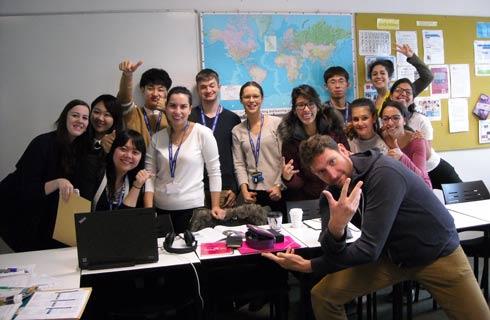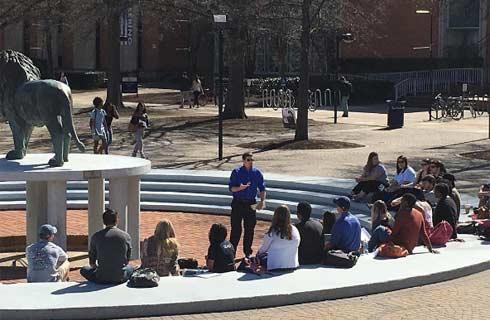Master of Science in Physics - Quantum Information and Computing

学历文凭
Masters Degree

专业院系
物理学

开学时间

课程时长

课程学费

国际学生入学条件
An Honours Bachelor's degree (or equivalent) in Science with at least a 75% standingGraduate Record Examination (GRE) Physics subject test scores for all students who have completed their post-secondary education outside of CanadaThree references, two academic
IDP—雅思考试联合主办方

雅思考试总分
7.0
了解更多
- 雅思总分:7
- 托福网考总分:90
- 托福笔试总分:160
- 其他语言考试:PTE (Academic) - 63 (writing 65, speaking 65)
CRICOS代码:
申请截止日期:请 与IDP联系 以获取详细信息。
课程简介
Quantum mechanics describes the often counterintuitive phenomena of light and matter with spectacular accuracy. Quantum information science exploits these phenomena such as Heisenberg’s Uncertainty Principle, superposition, and entanglement for new technologies in computing, communication, and sensing that would otherwise be impossible. The Department of Physics & Astronomy at the University of Waterloo is exploring the quantum world broadly with active theoretical and experimental research programs in quantum cryptography and communication, quantum computing and simulation and quantum sensors. In our state of the art laboratories, we are advancing the field with a diverse array of quantum systems including ultracold atoms and ions, superconductors, photonics, nuclear and electronic spins, neutron interferometry, and quantum dots. Quantum information is an inherently multidisciplinary field, often overlapping with Quantum Materials and Atomic, Molecular and Optical Physics research groups.
相关申请

预科

奖学金

实习机会

在校学习

跨境学习

校园授课-线上开始

在线/远程学习
学校排名
世界排名
201
数据源:泰晤士高等教育世界大学排名
关于滑铁卢大学

滑铁卢大学是加拿大滑铁卢市的一家著名大学,是一所以研究为主的中等大小的公立大学,创建于1957年。以数学、计算机科学、工程学而闻名。该校位于安大略省的西南面的滑铁卢市,占地面积约为1000英亩。滑铁卢大学成立至今,仅数十年便跻身加拿大名校之列,是加拿大发展最快的学校。2011年到2013年,该校一直稳居麦克林杂志评选的加拿大综合性大学排名的第三位,是北美地区最优大学之一,其数学,计算机科学和工程学科教学水平居世界前列。特别是做为北美地区第一个经认可建立数学系的大学,拥有世界上最大的数学系以及世界上最大的合作办学项目。学校共授予100多个本科学位专业,28种硕士及博士学位专业,学校的代表队曾多次获得ACM 国际大学生程序设计竞赛的冠军。
本校相关课程
系统设计工程哲学博士

学历文凭
Ph.D.
下一个开始日期
课程费用总额
系统设计工程工程学硕士

学历文凭
Masters Degree
下一个开始日期
课程费用总额
社会学文学硕士[仅课程]

学历文凭
Masters Degree
下一个开始日期
课程费用总额
Doctor of Philosophy in Religious Studies

学历文凭
Ph.D.
下一个开始日期
课程费用总额
运动机能学博士-工作与健康

学历文凭
Ph.D.
下一个开始日期
课程费用总额
娱乐与休闲研究哲学博士

学历文凭
Ph.D.
下一个开始日期
课程费用总额
其他相关课程
物理学哲学博士-量子信息

滑铁卢大学
泰晤士高等教育世界大学排名:

学历文凭
Ph.D.
下一个开始日期
课程费用总额
物理学理学硕士-量子信息

滑铁卢大学
泰晤士高等教育世界大学排名:

学历文凭
Masters Degree
下一个开始日期
课程费用总额
物理学哲学博士

滑铁卢大学
泰晤士高等教育世界大学排名:

学历文凭
Ph.D.
下一个开始日期
课程费用总额
物理学理学硕士

滑铁卢大学
泰晤士高等教育世界大学排名:

学历文凭
Masters Degree
下一个开始日期
课程费用总额
物理学理学士(荣誉学位)

滑铁卢大学
泰晤士高等教育世界大学排名:

学历文凭
Bachelor Degree with Honours
下一个开始日期
课程费用总额
物理学理学硕士

劳伦森大学
泰晤士高等教育世界大学排名:

学历文凭
Masters Degree
下一个开始日期
课程费用总额



